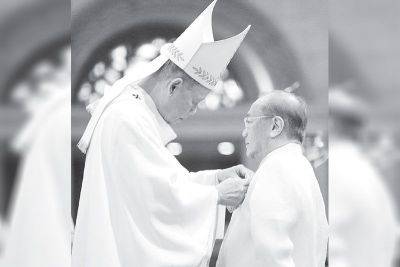Dr. Jose Rizal, his Chinese immigrant forebear Domingo Lamco and other Filipino heroes with Chinese heritage
MANILA, Philippines — Dr. Jose Rizal, the national hero of the Philippines, stands as an icon of intellectual brilliance, patriotism and resilience. Beyond his indelible mark on the nation's history, Rizal's Chinese immigrant ancestral roots unveil a remarkable tale of perseverance, economic success and cultural contributions.
In particular, his Chinese immigrant ancestor, Domingo Lamco, represents a narrative of triumph over adversity that echoes the broader contributions of the Chinese community to the Philippines.
Throughout Philippine history, Rizal and other Filipino heroes of Chinese heritage have contributed much to the Filipino nation’s quest for freedom, economic development and progress.
Domingo Lamco, also known by his Chinese name Cua Yi-Lam (“Ke Yi-Nan” in Mandarin), was a trailblazer in the face of oppressive Spanish colonial conditions.
Born in the village of Zhangguo (“Siongque” in Hokkien) in Jinjiang County (now a city), Quanzhou City, Fujian province, Lamco navigated the tumultuous era of Spanish colonization. Segregated in the Parian ghetto along with other Chinese traders and artisans, Lamco overcame hardships and persecution.
Overcoming adversity, Lamco was a “rags-to-riches” entrepreneur and later moved to Laguna province to become the founder of the high-educated, esteemed Mercado family. “Mercado” was an adopted surname by Domingo Lamco for his children and descendants. The Mercado family would later play a significant role in shaping the economic, cultural, and social fabric of the Philippines.
Over the centuries, Filipino-Chinese individuals and organizations, such as the Federation of Filipino Chinese Chambers of Commerce and Industry Inc. (FFCCCII), with 170 Filipino-Chinese chambers of commerce nationwide from Aparri to Tawi Tawi, have been at the forefront of philanthropy and diverse charities.
Their financial and logistical contributions to education, healthcare, arts and culture, religious faith and social welfare showcase a commitment to Philippine nation-building.
The legacy of Rizal and his Chinese forebear, Domingo Lamco, serves as a testament to the enduring positive impact of Chinese influence on the Philippines. This







